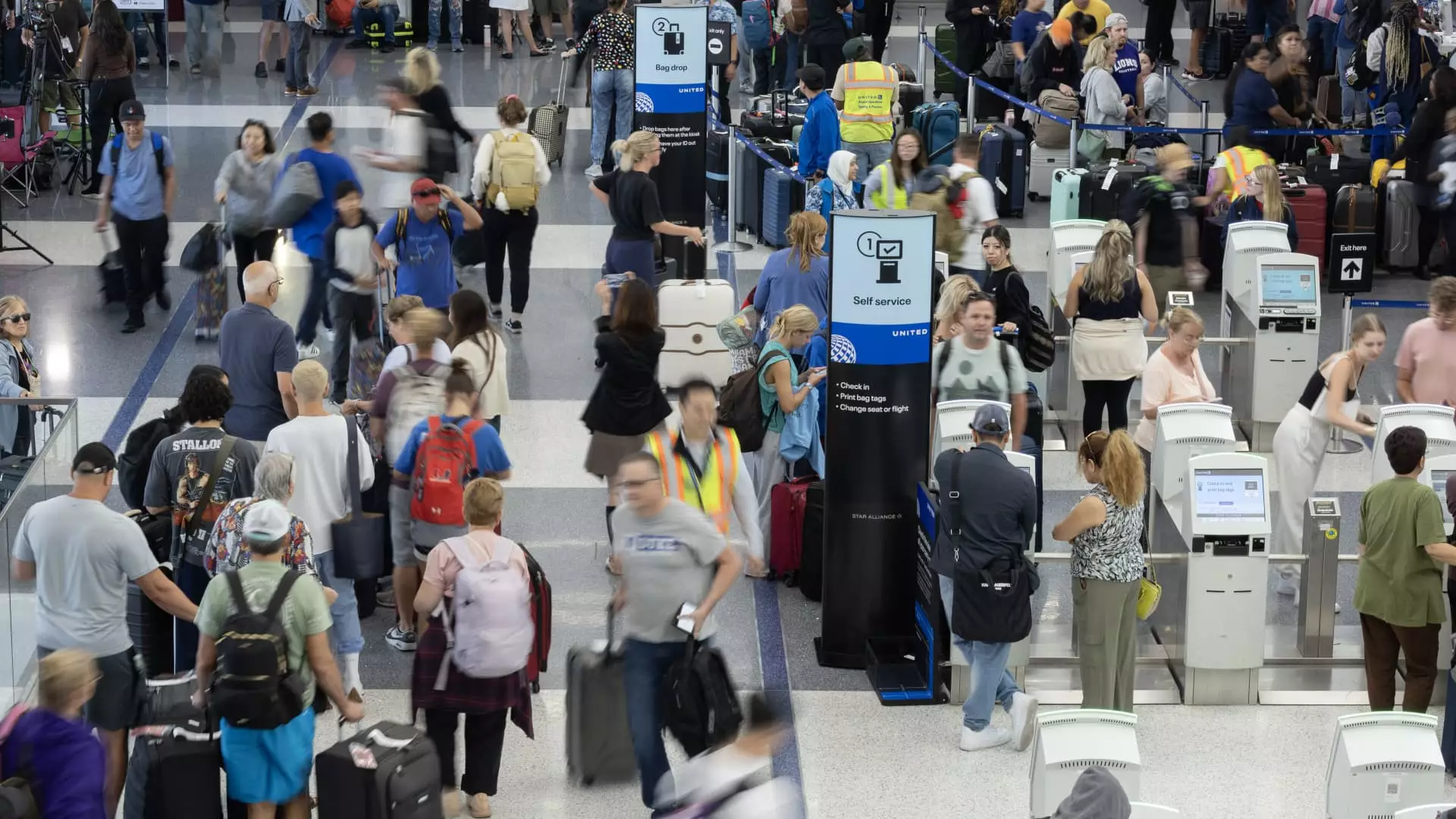Following a chaotic day of flight cancellations and delays due to a global IT outage, airlines around the world are slowly recovering. On Saturday, the number of cancelled flights decreased significantly compared to the previous day. More than 1,200 flights were canceled on Saturday, with the majority of them being in the United States. This was a notable improvement from Friday, where over 5,000 flights were canceled worldwide. Additionally, more than 12,000 U.S. flights experienced delays as a result of the IT issues.
The disruptions caused by the IT outage were likened to those brought about by severe weather conditions such as winter storms or hurricanes. However, what made this situation especially challenging for airlines was the unexpected nature of the outage. There was no prior warning or time for airlines to prepare, resulting in them having to quickly adapt and find solutions to accommodate affected customers, especially with the approaching summer weekend.
The major IT outage was triggered by a software update from CrowdStrike that malfunctioned, causing widespread disruptions to Microsoft systems used by businesses globally. This unexpected turn of events led to airlines struggling to operate smoothly, affecting thousands of flights and countless passengers. Despite the difficulties faced, airlines worked tirelessly to rectify the situation and ensure the safety and comfort of their customers.
United Airlines’ Chief Operating Officer, Toby Enqvist, commended the global teams for their dedication in resolving the crisis swiftly. In a statement, Enqvist expressed pride in the efforts made to get operations back on track following what was described as the most disruptive technology outage in history. United Airlines, which experienced a significant number of flight cancellations on Friday, managed to reduce the percentage of cancelled flights on Saturday to 7%, a marked improvement from the previous day.
Other major airlines, such as Delta Air Lines, also saw improvements in their flight operations following the IT outage. While Delta had to cancel approximately 10% of its Saturday flights, this was a significant decrease from the 31% cancellation rate experienced on Friday. Airlines took steps to waive fare differences and fees for affected customers, demonstrating their commitment to providing support and assistance during this challenging time.
The aftermath of the global IT outage presented significant challenges for airlines, leading to widespread flight disruptions and inconvenience for passengers. However, with concerted efforts and round-the-clock work, airlines were able to mitigate the impact of the outage and gradually restore normalcy to flight operations. The incident serves as a reminder of the critical role technology plays in the airline industry and the importance of preparedness in addressing unforeseen disruptions.


Leave a Reply